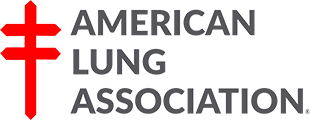Sample Acceptance Criteria
Upon arrival at the laboratory the sample is inspected and the following conditions are checked.
- Completeness for sample collection forms. Which include sample identification, location, date and time of collection, name of collector, type of preservation if applicable, sample type
- Correct sample labeling
- Use of appropriate sample containers, adequate volume, preservation, and holding time.
- Adequate sample volume to perform the necessary tests.
- Leakage or breakage
- Temperature of samples requiring thermal preservation will be checked. Samples hand carried to the lab immediately after collection that does not meet the temperature criteria will be considered acceptable if there is evidence that the chilling process has begun, such as arrival on ice.
- The pH of samples requiring acid preservation will be checked using pH test strips on a small aliquot of the sample (approx. 10 ml).
- Microbiology samples coming from a chlorinated system or from a source that has recently been chlorinated will be checked for the presence of chlorine. Microbiological samples from chlorinated water systems do not require an additional chlorine residual check in the laboratory if the chlorine residual is checked in the field and actual concentration is documented with sample submission.
- The holding time (time between collection and the time sample must be received in the laboratory) is 30 hours.
Action taken when sample acceptance criteria is not met
- When the sample received does not meet the sample acceptance requirements, the laboratory will make a determination whether another sample should be collected or the sample can be analyzed. The condition of the sample will be documented. Records of any conversation or correspondence concerning the sample will be retained. The client will be contacted and the informed as to how the unacceptable condition may affect the analysis of the sample.
- When the sample received from a client does not meet the acceptance requirements, the laboratory shall request another sample or permission from the client to continue with the analysis if in the opinion of the laboratory the discrepancy does not affect the result. The condition of the sample will be documented.
- Samples analyzed by the laboratory not meeting the sample acceptance requirements will be qualified on the final report.
- Samples for drinking water compliance analyses must be rejected if they do not meet the acceptance requirements. By Federal regulation, the sample cannot by analyzed even if requested by the client.





